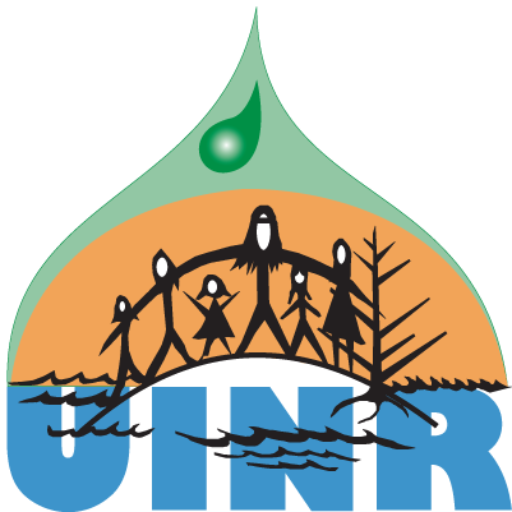A special workshop on plamu (Atlantic salmon) in Cape Breton is being held in Sydney on March 7 and 8, 2011. UINR and the Cape Breton Collaborative Salmon Initiative (CSI) are bringing together interested people, both Mi’kmaq and non-native, from around the Island to find ways to work together towards the common goals of increasing the plamu/salmon population and the health of their environment.
The workshop will focus on gathering traditional knowledge from Elders and other resource users in the community. The workshop on March 7 takes place from 6:00–9:00 pm with dinner followed by presentations and discussion. The second day will focus on participants sharing traditional knowledge.
Lisa Young, UINR’s Executive Director, explains, “We believe that it is important to bring everyone together to improve the understanding between cultures and to illustrate that we all have the same goals–the protection and improvement of salmon habitat in our rivers. A traditional talking circle will end the workshop, giving the participants an opportunity to express their opinions and contribute to the education process.”
The workshop will introduce a new CSI document: “Stewardship Framework for the Monitoring, Assessment and Enhancement of Plamu/Atlantic Salmon Populations and Their Habitat in Unama’ki/Cape Breton.” It outlines a five-year plan to address CSI’s stewardship goals.
Plamu/salmon are important in the history and culture of both Mi’kmaq and non-native peoples and everyone shares a concern on the species’ declining populations. Fisheries and Oceans Canada identified 44 rivers that currently support or have been known in the past to support plamu/ salmon populations. Other rivers that drain into the ocean could potentially support populations.
Scientific and anecdotal reports indicate that most plamu/salmon populations here are in decline or are at low population size.
Of the six rivers in Cape Breton that are regularly assessed, only three are above or near to their spawning requirement. All harvest of plamu/salmon in eastern Cape Breton have been closed and recreational retention fisheries are only allowed in some rivers in western Cape Breton.
The future of the resource is uncertain, especially in the face of continuing environmental pressure from land use practices and water management.
Lisa continues, “A stewardship strategy must recognize the treaty and aboriginal rights of the Mi’kmaq as well as the economic importance of the recreational fishery. Our strategy focuses on sustainability: how to conserve or enhance salmon populations while meeting the needs of present generations without compromising the ability of future generations to meet their needs. Sustainability is particularly important given that all planning and recovery initiatives will require the support and participation of community groups and the general public of Cape Breton Island.”
Consideration of watershed characteristics and the impacts of human activities on reproduction, survival and growth in aquatic environments is an important component in conservation or recovery initiatives.
Direction is provided on two aspects of habitat conservation: its protection and its restoration.
The strategy gives direction on where groups can access information to assist in their activities, including measuring the quality of the existing habitat, and ways in which habitat protection and restoration activities can be determined and prioritized.
Lisa concludes, “Our ultimate goal is to provide direction and support to community groups who want to conserve, rebuild or restore salmon populations in Unama’ki/Cape Breton rivers for the benefit of everyone.”
lisa@uinr.ca

